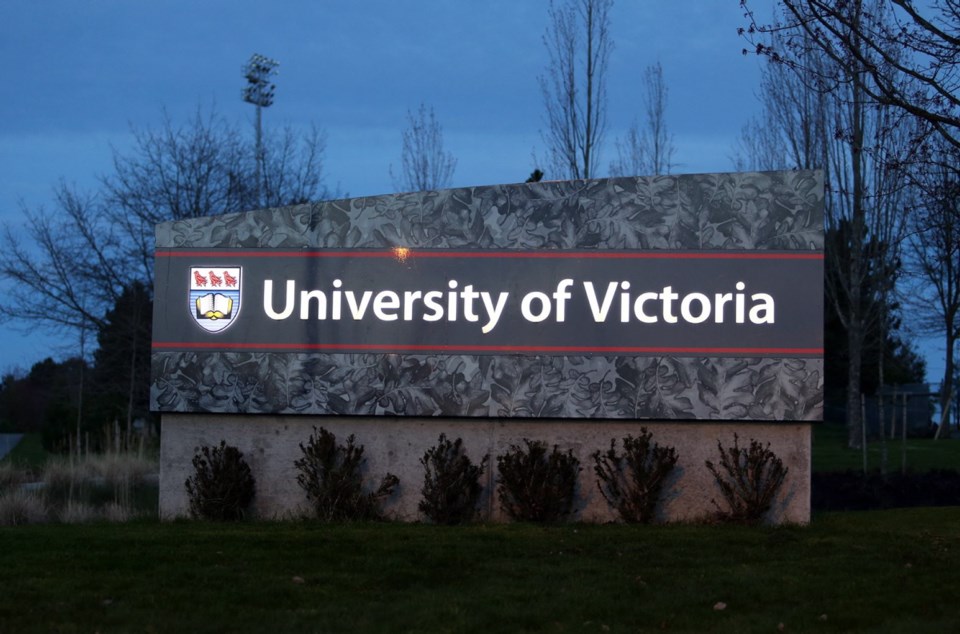A University of Victoria entrepreneurship professor and an associate professor in the university’s department of Indigenous education have been honoured as 2020 3M National Teaching Fellows.
Edosdi Judy Thompson, a member of the Tahltan Nation, plans to use the fellowship to “focus on looking at mandatory Indigenous studies courses that are being taught across the country.”
These can be difficult courses, especially for some post-secondary students taking them as a program requirement, she said.
Students might come into the classroom with little knowledge of Indigenous history in Canada and without an understanding of why the courses are included in a curriculum, she said Thursday.
She would like students to be aware that “we need to know the history of the peoples’ territory we are living on first of all.”
It is important to “understand and think about ways we could all work together in terms of reconciliation. It’s not about blaming, it’s about needing to know this history and then going forward, what do we need to do — all of us together.”
Her aim is to see people build relationships based on respect and understanding. The associate professor, who received her PhD from UVic, is planning to speak to Indigenous and non-Indigenous scholars about this topic.
She teaches courses on Indigenous language revitalization in UVic’s master’s program. She is looking at how language and healing can work together and how to find ways for Indigenous people to return to their languages. Some, because of issues such as intergenerational trauma, do not know their own languages.
Until recently, she was director of the Tahltan language-revitalization program. While serving in that capacity, she worked with UVic to bring its Indigenous language revitalization diploma to Dease Lake. The first group of students in the Tahltan Nation graduated in June.
Brent Mainprize, a professor in the Gustavson School of Business, is also a new 3M fellow. He is the program director and co-founder of the Aboriginal Canadian Entrepreneurs program offered through the Tribal Resources Investment Corp., based in Prince Rupert. ACE delivers teaching and coaching, and it mentors fledging Indigenous entrepreneurs.
Since 2013, 384 students from 46 Indigenous communities in B.C. have graduated from ACE. It has sparked more than 100 businesses, with more planned. Many program graduates pursue additional education or find jobs in their areas of interest. It has an offshoot now, called the Artist-in-ACE program.
Mainprize was initially invited to Prince Rupert by Frank Parnell, chief executive of TRICORP, about 20 years ago to do facilitation and staff training. At that time, he met a lot of young Indigenous leaders and has worked with them subsequently.
He has been invited to more than 40 Indigenous communities in B.C. to help set up programs focusing on Indigenous-led economies and has long-standing relationships with the Nisga’a Nation and with the Haida Nation.
“In many cases, those nations were looking for partners to partner with to develop an entrepreneurial economy. I had the good fortune to be at UVic and UVic was very open to those partnerships and away we went.”
Early discussions at TRICORP looked at enabling people to create businesses using existing skills. This allowed them to “plug into the supply chain of a lot of those developments that were happening — not as a short-term employee but as a long-term business that could then service all kinds of projects as they ebb and flow through the region.”
Since then, “We’ve had a whole lot of opportunity to work in communities that want to build their cultural tourism sector.”
Visitors will come from around the world to see First Nations exhibits in museums and while here are looking for other activities that will get them out onto the land with individual entrepreneurs offering unique experiences, he said.



